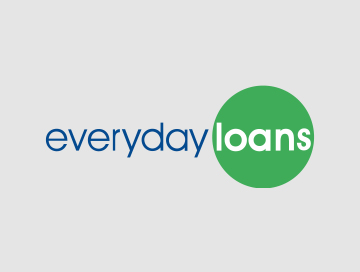Dos and don’ts: What types of expenses can personal loans be used for
While personal loans can be flexible, there are still important distinctions to be mindful of. Some kinds of purchases and expenses aren’t generally allowed for secured or unsecured loans, and knowing the differences is very important if you are planning to apply for a loan yourself
Deciding on a loan
Taking a loan is a serious decision to make. Even if your loan is a short-term personal loan. It’s important for you to carefully consider your requested amount, the intended purpose for the money, and your ability to repay over your agreed repayment schedule.
This will help ensure that you can repay your loan in good time and without any problems. Done responsibly, a personal loan can help improve your ability to meet unexpected or short-term financial obligations.
Personal loans: What you might use one for
Often referred to as unsecured loans, this kind of loan is not secured against an asset such as a house. Because of this, a personal loan can usually be applied for quickly online. This makes personal loans well suited for short-term expenses that may appear unexpectedly.
Here are some examples of what you might use a personal loan for.
Buying or repairing a car:
If you are looking to buy a new car or need to fix your current vehicle, a personal loan can help you to meet the costs involved. With a loan helping you to buy or repair a vehicle, you can then repay on an agreed schedule – usually once per month for an agreed period.
Home improvement:
Whether you’re planning to renovate a part of your home or simply want to buy a new mattress or item of furniture, home improvements can be costly. Some renovation projects also need to be done urgently so there may not be time to wait while you save up.
Important events:
Some life events, such as weddings, funerals, and birthdays, incur a lot of expense. Many people look for some manner of financial assistance to help them meet these costs when they crop up. A personal loan can help cover these costs while spreading your repayments over a longer-term. This allows you to cover the initial upfront costs and work your repayments into your budget.
Consolidating debt:
Debt consolidation is the process of taking a new loan to repay your other financial obligations. Sometimes, this is done to help reduce the administrative burden of managing multiple payments. You may also be able to reduce your overall monthly payments if your debt consolidation loan has a lower interest rate than the loans you will be consolidating, but you may also need longer to pay back the same amount of money.
You can use a personal loan for debt consolidation, but you may want to obtain financial advice before you seek to do so. Entities like the Citizen’s Advice Bureau can offer free support to help discern whether this is a suitable option for you to consider.
Things personal loans may not be suited for
Different lenders have different rules governing what their loans can be used for. While each lender is different, many banks, building societies and loan companies may not let you take out a personal loan for the following reasons.
Investing:
Taking a loan to invest in a market or product is essentially gambling. The nature of investing involves risk, meaning that your loan could leave you in greater debt if your investment loses value. For this reason, many personal loan lenders avoid lending for investment purposes.
Starting a company:
A personal loan is not designed for starting a business. If you are planning a start-up and need financial assistance, you are better suited to a business loan. There are many business lenders who can discuss your options, including your bank.
For business loans, your application process will be different from a personal loan and may require security via an asset such as your home.
Property:
There are a number of financing options that are designed for purchasing property but personal loans are not one of them.
Most lenders do not offer personal loans that are large enough to cover the full cost of something like a home. Personal loans are also generally unsecured which means the lender is not able to recoup a loss by foreclosing on the property.
Personal loans are also not well suited to cover the deposit on a home or property. Your mortgage provider will require evidence of how you gathered and raised your deposit money. If you attempt to use a personal loan, they will likely refuse your application.
In addition to this, a personal loan used for a deposit will leave you with more repayments on top of the mortgage itself. If you are unsure of how to raise money for this purchase, please seek financial advice from a trusted source such as the Citizen’s Advice Bureau.
We hope this helps!




